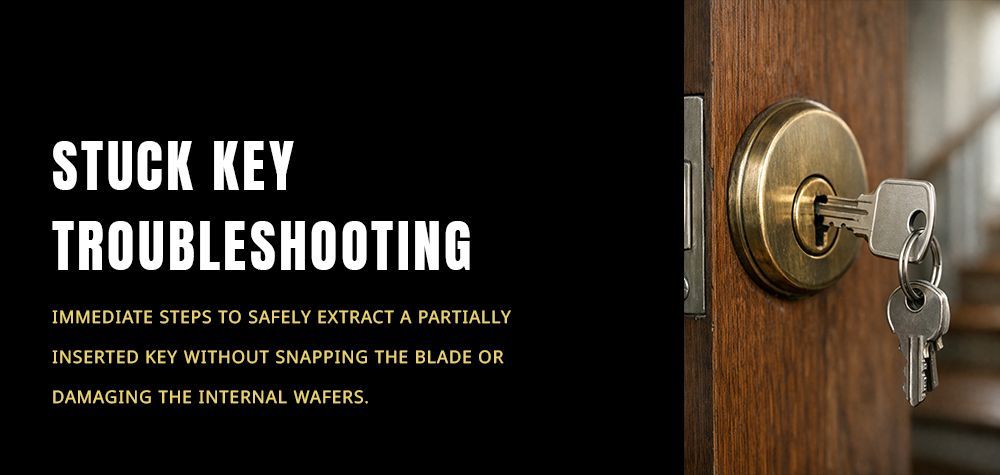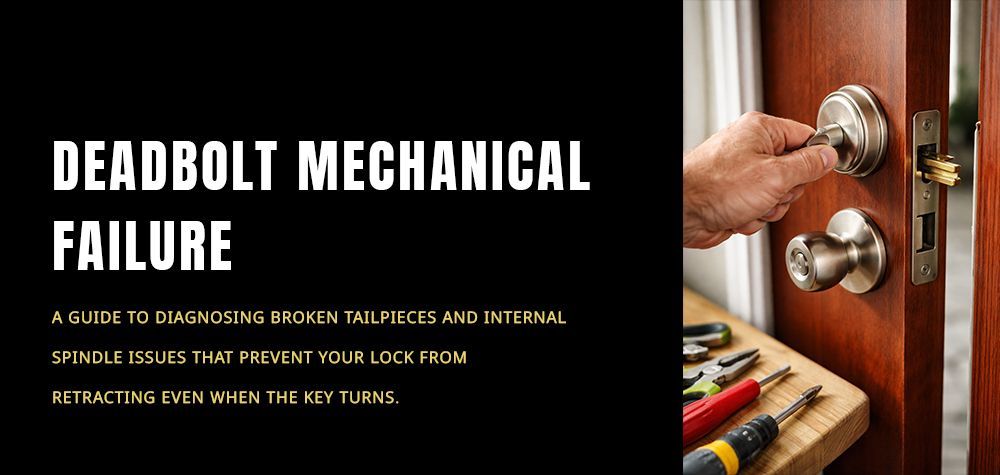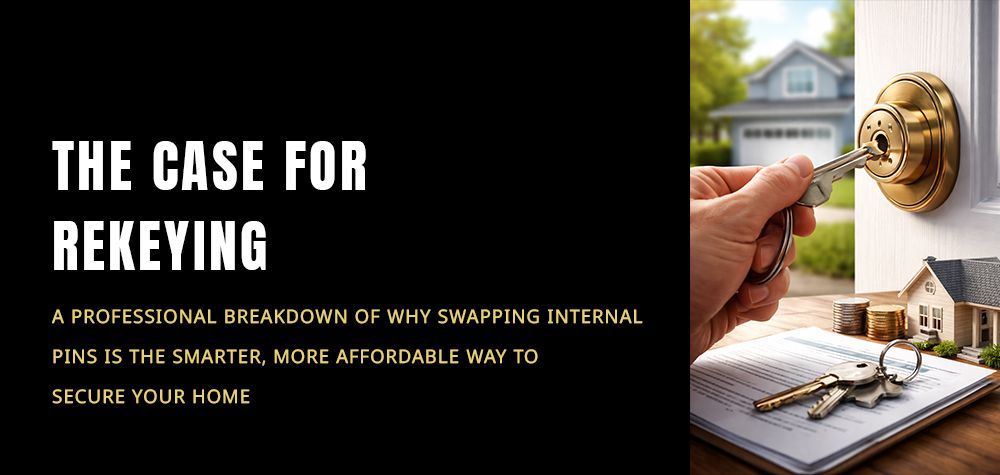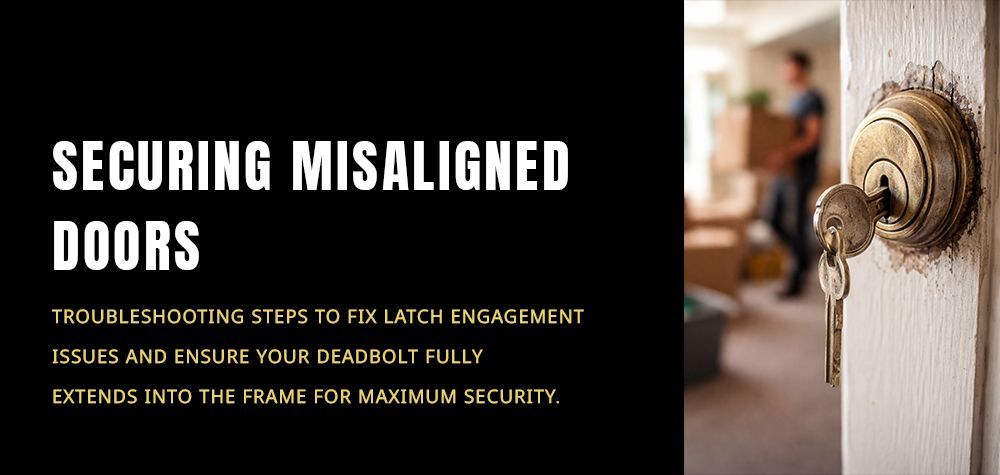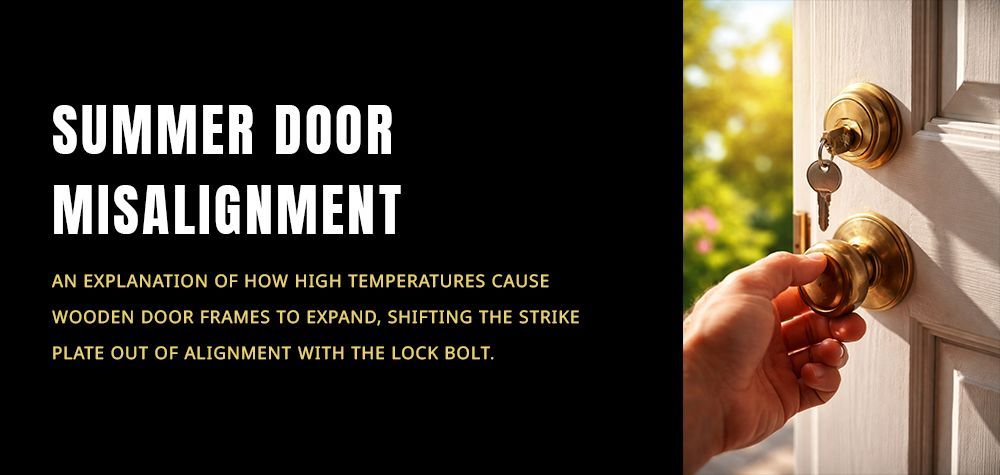Should you Replace or Rekey Locks
Choosing between replacing or rekeying locks is a crucial decision for bolstering security. In this comprehensive blog post, we delve into the intricacies of this dilemma, providing a detailed analysis to help you make an informed choice. Explore the factors influencing the decision-making process, including cost considerations, security implications, and the specific circumstances that warrant one option over the other. Whether you're a homeowner or managing a commercial space, this guide will empower you to optimize your security measures effectively.
When to Rekey Your Locks
Knowing when to rekey your locks is essential for maintaining a secure environment. Rekeying is advisable in various scenarios, such as when you move into a new home, experience a security breach, or when keys are lost or stolen. It's a cost-effective alternative to changing locks entirely, allowing you to keep the existing hardware while rendering old keys useless. Additionally, businesses may choose to rekey when employees leave or in the event of a security concern. Regularly assessing the need for rekeying enhances overall security, providing peace of mind and control over access to your residential or commercial space.
Locks that Require Multiple Keys
Locks that necessitate multiple keys offer an added layer of security by requiring multiple access points for entry. These complex locking systems are designed to enhance protection in sensitive areas, providing an extra level of control over access. Such locks are often employed in high-security environments, commercial spaces, or areas with restricted access. The requirement for multiple keys adds a safeguard against unauthorized entry, making it more challenging for individuals to gain access without proper authorization. Implementing locks with multiple keys is a strategic measure to fortify security and safeguard valuable assets.
Moving
Rekeying locks is a prudent step when moving to a new home or office. This process involves adjusting the lock to work with a new set of keys, rendering old keys obsolete. It provides an effective and cost-efficient security solution, ensuring that only authorized individuals have access to the premises. Rekeying is also recommended after instances like lost or stolen keys, maintaining security without the need for a complete lock replacement. This straightforward procedure offers peace of mind during transitional phases, safeguarding your property and ensuring that you have control over who can enter your space.
Lost Keys
Losing keys can be a stressful experience, but taking swift and cautious action is crucial. Start by retracing your steps and checking common places where the keys might be. If they remain elusive, consider notifying relevant parties, like roommates or building management, if applicable. Additionally, it might be wise to rekey or replace locks to ensure security. Modern solutions, such as electronic key finders, can aid in the search. Stay vigilant and take preventive measures, such as having spare keys or using smart locks, to mitigate the impact of lost keys in the future.
Concierge Services Change
When concierge services undergo changes, residents or clients can anticipate improvements in their overall experience. This could involve enhancements in efficiency, expanded service offerings, or a shift in operational procedures. Communication from management is key during such transitions, providing clarity on the modifications and any impact on existing services. Residents should stay informed about updated procedures or new offerings to make the most of the concierge services. Embracing change often leads to a more tailored and responsive experience, ensuring that concierge services continue to meet the evolving needs and expectations of the individuals they serve.
Rekeying Lock Cost
The cost of rekeying a lock varies, influenced by factors like the type of lock and the locksmith's fees. On average, rekeying a standard lock can range from $50 to $150, excluding additional charges for service calls or emergency requests. Factors such as the number of locks and the complexity of the keying system can also impact the overall cost. It's advisable to obtain quotes from local locksmiths to get a precise estimate based on your specific requirements. While rekeying is generally more cost-effective than replacing locks, obtaining transparent pricing ensures you make an informed decision for your security needs.
Can you Rekey Home Yourself
Rekeying your home locks yourself is possible for those with some DIY skills. Rekey kits, available at hardware stores, typically cost between $10 to $25 per lock. These kits usually include new keys and all necessary tools. The process involves disassembling the lock, replacing the pins, and configuring it to a new key. While it's a cost-effective option, it requires patience and precision. If uncertain, consulting online tutorials or seeking professional advice may be beneficial. However, for a budget-friendly solution and a sense of accomplishment, rekeying your home locks with a kit can be a viable option.
Changing Your Locks
Changing your locks is a prudent step for enhanced security, and the cost varies based on factors like lock type and complexity. On average, hiring a locksmith to change a standard lock can range from $75 to $200 per lock. High-security or electronic locks may incur higher costs. DIY options, involving purchasing new locks and installing them yourself, can reduce expenses, with prices for standard locks starting around $20 each. Professional installation ensures proper functioning and security. Consider your budget, skill level, and the specific security needs of your home or business when deciding between DIY and professional lock replacement.
Can you Change Locks by Yourself?
Changing locks yourself is possible with some considerations. If you're confident in your DIY skills and follow instructions carefully, you can save on locksmith costs. However, it requires precise installation to ensure security. Factors like lock type, door material, and skill level influence success. Simple lock replacements on standard doors are generally manageable. However, for complex or high-security locks, professional installation is recommended to avoid compromising security. Evaluate your capabilities, the lock complexity, and the significance of the door's security when deciding whether to change locks yourself or seek a professional locksmith for a secure and effective installation.
Reasons You Should Change Your Locks
Changing locks is crucial for security. Reasons include moving to a new place, lost or stolen keys, or after a break-in. Regular changes enhance safety, control access, and provide peace of mind.
Changing the Look
Changing the look of your locks can be a simple yet effective way to upgrade the aesthetics of your doors. Whether you're renovating your home or seeking to modernize the appearance, selecting new locks with different finishes or styles can transform the overall look and feel of your space. Consider options that complement your interior design scheme or exterior architecture to create a cohesive and visually appealing environment. Additionally, updated locks can enhance curb appeal, making a positive impression on visitors or potential buyers.
Switching to a Keyless Lock System
Switching to a keyless lock system represents a modern and convenient approach to home or office security. With these systems, traditional keys are replaced by electronic or biometric methods, such as keypad codes, smart cards, or fingerprint recognition. The benefits include enhanced security through unique access credentials, the convenience of not needing physical keys, and the ability to remotely control and monitor access. Keyless systems offer flexibility, allowing you to grant temporary access to guests or service providers. While installation costs may vary, the long-term advantages in security, convenience, and control make the switch to a keyless lock system an appealing and forward-thinking choice.
Upgrading to a Master key System
Upgrading to a master key system provides efficient access control for residential or commercial properties. This system allows for a hierarchical key structure, where a master key can open multiple locks, while individual keys only access specific areas. Ideal for large complexes or businesses, it simplifies key management and enhances security. While the initial installation may involve some cost, the long-term benefits of streamlined access and improved security make upgrading to a master key system a strategic investment.
Using a low-Quality or older Lock
Using a low-quality or older lock poses a potential security risk. Older locks may be more susceptible to wear and tear, reducing their effectiveness. Low-quality locks may lack modern security features, making them vulnerable to tampering. Upgrading to newer, higher-quality locks enhances overall security, providing better protection against unauthorized access. Regularly assess and replace outdated or subpar locks to ensure the safety of your property and possessions, maintaining peace of mind and deterring potential security threats.
How can I tell if my lock is low-quality or outdated?
Look for signs of wear, rust, or difficulty in operation. Older locks without modern security features may be more vulnerable. Consult with a locksmith for an assessment.
Why is using a high-quality lock important for security?
High-quality locks offer advanced security features, durability, and resistance to tampering. Upgrading ensures a stronger defense against potential intruders.
How often should I replace my locks for optimal security?
Consider replacing locks every 5 to 7 years or sooner if you notice signs of wear. Regular assessments and upgrades maintain a robust security posture.
Call Us Any Time!


